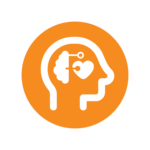 What are the Eight Dimensions of Wellness
What are the Eight Dimensions of Wellness
The Center for Health Education & Wellness acknowledges that health and wellness is multifaceted and aims to promote a holistic well-being model across eight dimensions of wellness.
The 8 Dimensions of Wellness is a framework used to describe the multifaceted nature of well-being. Each dimension represents an important aspect of a person’s health and contributes to overall life satisfaction and balance. Focusing on all dimensions helps to promote a holistic approach to health. Here’s a brief exploration of each dimension:
Explore each Dimension of Wellness
 Emotional — Coping effectively with life and creating satisfying relationships.
Emotional — Coping effectively with life and creating satisfying relationships.
Coping and resiliency aren’t just buzzwords. The ability to rest and recover from setbacks affects mental health. Believing you can learn and grow from hardship can give you an optimistic perspective that can help you get through a difficult situation.
 Environmental — Good health by occupying pleasant, stimulating environments that support well-being.
Environmental — Good health by occupying pleasant, stimulating environments that support well-being.
Getting outdoors and enjoying green spaces can help you feel better. Take advantage of good weather to play games with friends, study outside or simply relax. It is also important to take care of the environments you live, work and play in.
 Financial — Satisfaction with current and future financial situations.
Financial — Satisfaction with current and future financial situations.
Money is a tool that helps you achieve your goals and allows you to meet basic needs. When money is not working for you, it can cause a lot of stress. Financial wellness can be a journey because it takes time to get good with money.
 Intellectual — Recognizing creative abilities and finding ways to expand knowledge and skills.
Intellectual — Recognizing creative abilities and finding ways to expand knowledge and skills.
This dimension focuses on habits and behaviors that keep our brians active and our intellect expanding. Put this in practice by being inquisitive with a focus on learning and growing. Look for different perspectives in an discussion and put them in consideration. Plan a game night and challenge yourself to broaden your perspective and understanding of diverse points of view.
 Occupational — Personal satisfaction and enrichment derived from one’s work.
Occupational — Personal satisfaction and enrichment derived from one’s work.
Focus on the experience you will gain and strive to build positive relationships with co-workers and supervisors. Even if you’ve landed your dream job, it’s still important to balance work and your personal life to avoid burnout, and to assess if you’re being treated fairly.
 Physical — A healthy body.
Physical — A healthy body.
Taking care of our bodies through nutrition, exercise, appropriate and routine health care, and adopting good physical health habits.
 Social — Developing a sense of connection, belonging, and a well-developed support system.
Social — Developing a sense of connection, belonging, and a well-developed support system.
This dimension involves developing healthy relationships with friends, family, and the community. A well develop social wellness involves having an interest in and concern for the needs of others within your community and globally.
 Spiritual — Expanding our sense of purpose and meaning in life.
Spiritual — Expanding our sense of purpose and meaning in life.
Spirituality can provide comfort and community. It can be explored in several ways such as a faith-based practice or finding a deeper meaning through nature. It is deeply personal and can shift over time based on life experiences.